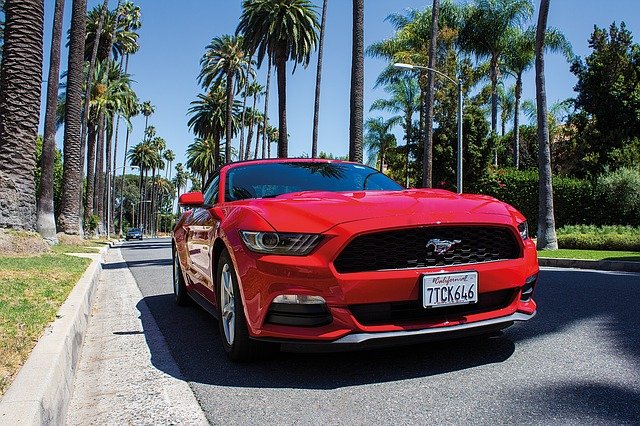Partnerships is the New Buzzword in the Automobile Industry: Here’s Why
The automotive sector is in a state of flux. Many changes are happening due to technological innovations, like the move to electric cars and self-driving cars.
The comments from Toyota President Akio Toyoda nicely illustrate the fundamental shifts that are occurring; “Our competitors no longer just make cars. Companies like Google, Apple, and even Facebook are what I think about at night.”
As a result of this disruption to the industry, automakers and suppliers are developing partnerships to help them gain a strategic edge. Below you’ll learn about some of the types of partnerships that are springing up.
Connected cars all around
According to Allied Market Research, the global market for connected cars was valued at $63.03 billion in 2019. It is projected to reach $225.16 billion by 2027, registering a CAGR of 17.1%.
By technology, the market is categorized into 3G, 4G/LTE, and 5G. Connectivity solutions are divided into integrated, embedded, and tethered. Customer attraction to connected cars has compelled manufacturers to launch commercial applications.
For instance, Ford partnered with Verizon Telematics to embed connectivity over Ford’s SYNC Connect, including a preinstalled 4G LTE modem and enablement for field service management. Ford later partnered with Google to equip Ford self-driving cars with Google self-driving software.
Security
Back-to-back security is essential for both security and to enhance customer confidence in connected and automated cars. Car manufacturers and their suppliers are currently working with standards institutions to create systems and architectures to tackle the increased attack transmitters that connected cars are producers.
Some top-end car manufacturers are currently using built-in telemetry. The Bugatti Chiron, for example, can transmit data between the car and the factory 24/7 as long as there is smartphone coverage.
The telemetry system monitors 10,000 different signals, including lights, engines, and infotainment. When an alarm is triggered, one of three Bugatti ‘flying doctors’ is dispatched, anywhere in the world, to fix the problem.
Car manufacturers can enhance security in their connected cars by integrating cars with an IoT network called CV2X (Cellular Vehicle to Everything) that connects vehicles, road infrastructure, and other smart devices with each other. Enhanced vehicle communication technologies facilitate fast data transmission and improve drivers’ response time.
In-car digital payment services are on their way. IBM and Visa, for example, are working on embedding payments into car technology.
AI: the originator for self-drive
AI is central to the autonomous car industry. The move to autonomous vehicles is causing car manufacturers to seek partnerships with tech companies. In 2017, Apple CEO, Tim Cook, stated the challenge of building autonomous vehicles as “the mother of all AI projects”. Apple is creating technology for self-driving cars.
Self-automated solutions are based upon a diverse landscape of algorithms, cameras, and sensors programmed to tackle a huge catalog of variables on highways and in cities.
Self-automated cars aren’t the only use for in-car AI. Car manufacturers are considering the possibility of utilizing AI to monitor driver emotional behavior. For example, an AI system can monitor the driver’s anger and agitation. Honda is already looking at producing an emotionally conscious car.
Unlikely Partnerships
Below are some examples of unlikely partnerships that have sprung up between automobile manufacturers and other firms:
- BMW has started working together with DOVU to pilot blockchain to track mileage in leased vehicles
- Jaguar Land Rover (JLR) is supplying 20,000 electric vehicles to Google’s self-driving car spin-off, Waymo.
- Fiat Chrysler has a partnership with Waymo to develop self-driving vehicles. It is also part of an alliance that includes BMW, Intel, and Delphi to make autonomous cars.
Companies are also looking at ways to disrupt sectors like food delivery. For example, in 2018, Toyota unveiled an electric concept vehicle, dubbed e-palette. The car was launched in partnership with Pizza Hut, Amazon, Mazda, Uber, and Chinese ride-hailing giant Didi Chuxing. Toyota expects that e-palette could be a mobile pizza parlor, shoe shop, or office.
Manufacturers and Suppliers
Now more than ever, manufacturers and suppliers have to work hand-in-hand to ensure productivity. One of the fallouts of the COVID-19 pandemic is that several car parts are in short supply. While the semiconductor shortage has made it to the headlines, several other parts, from seating foam to plastics, have also been hard to source.
That’s why auto manufacturers must be ready to work with a global automotive supply chain company that can source goods and improve supply chain management. Of course, they might have loyalties to certain suppliers, but manufacturers need to have options in case of disruptions.
Manufacturers must be willing to work with tried and tested suppliers who have years of experience and expertise behind them. That’s the only way to make it out of this harrowing situation. Clearly, partnerships are not an option anymore. Auto companies must ready themselves for a new normal, one defined by partnerships.

